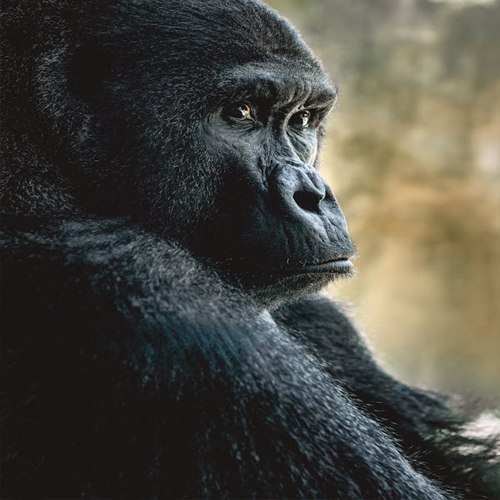100 MEN VS 1 GORILLA: WE ANSWER THE OBVIOUS QUESION
100 MEN VS 1 GORILLA: WE ANSWER THE OBVIOUS QUESION

A seemingly absurd hypothetical question has captured the internet's imagination and sparked serious scientific discussion: Who would win in hand-to-hand combat—one silverback gorilla or 100 unarmed men?
This unusual scenario has generated millions of views across social media platforms including TikTok, Instagram, and Facebook, with passionate arguments emerging on both sides. While the premise may seem frivolous, it has prompted experts to weigh in on the remarkable physical capabilities of one of our closest evolutionary relatives.
"As a scientist, I have many questions," says Dr. Cat Hobaiter, a primatologist and professor at Scotland's University of St Andrews who specializes in ape communication. "Are these 100 average guys, or 99 average guys and the Rock?"
Dr. Hobaiter approaches the viral thought experiment with scientific rigor, establishing parameters that include a confined space where "they're coming at [the gorilla] maybe six or eight guys at a time, no weapons allowed."
While many online commentators focus primarily on size differences, Hobaiter explains that the gorilla's advantage lies elsewhere. "Gorillas are big—a large silverback can be about 440 pounds—but not dramatically so compared to 100 men. Much more important is how powerful they are."
The key difference, according to Hobaiter, is in muscle composition. "All apes have two types of muscle fibers: slow twitch and fast twitch. Fast twitch give you explosive power. Human muscles are about half and half, other apes all have more fast twitch than slow, but gorilla muscles are an incredible 85-plus-percent fast-twitch fibers—the most of any ape."
This specialized muscle composition gives gorillas extraordinary strength advantages. "Pound for pound of muscle mass, they are much, much, much more powerful than we are," Hobaiter emphasizes.
Environmental factors would also play a significant role. "If we're talking mountain gorillas, they're high-altitude adapted, living at about 10,000 feet, the sort of height that has an average human panting just going up a few stairs," notes Hobaiter.
Her professional assessment is unequivocal: "Honestly, 100 guys wouldn't stand a chance. They're going to be swatting at him like out-of-breath children, and a single one of his punches would floor them."
The primatologist's conclusion is particularly stark: "And if the next 92 guys don't realize they don't stand a chance after he has knocked the first eight out without breaking a sweat, I've got to assume we're not talking about folks who are going to outsmart him."
While the scenario itself is improbable—gorillas are typically social animals that travel in groups—the discussion has provided a vehicle for public education about primate biology and the remarkable physical adaptations of great apes.
The viral debate also highlights humanity's enduring fascination with the animal kingdom and our place within it. Despite our technological and cultural achievements, there remains a collective curiosity about how we would fare in purely physical confrontations with other species.
Wildlife conservation organizations have seized on the trend as an opportunity to raise awareness about the endangered status of gorillas in the wild. Mountain gorilla populations, while showing modest recovery in recent years, remain vulnerable to habitat loss and poaching.
"If people are fascinated by the strength and capabilities of these magnificent animals, we hope they'll also consider supporting conservation efforts," says Jane Goodman of the International Gorilla Conservation Foundation. "The real victory would be ensuring these incredible creatures continue to thrive in their natural habitats."
As for the debate itself, it shows no signs of fading from public consciousness, with new memes, videos, and passionate arguments emerging daily across social platforms. The question may never be definitively answered—and for the safety of both humans and gorillas, that's probably for the best.
"Sometimes these seemingly silly questions can lead to genuine scientific interest," concludes Hobaiter. "If this debate helps more people appreciate the remarkable adaptations of our primate relatives, that's a positive outcome, regardless of who would hypothetically win."
Related News .
Stay updated with the most important events.




